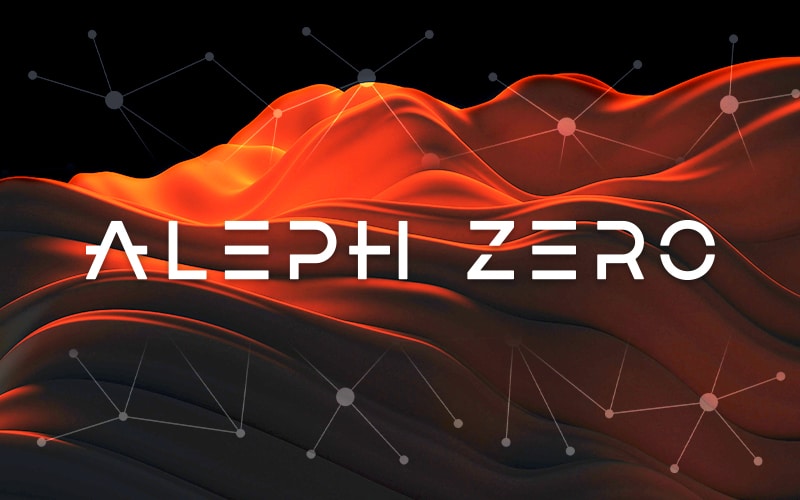
How to stake AZERO on the Aleph Zero
Aleph Zero is a PoS (Proof-of-Stake) public blockchain equipped with DAG (Directed Acyclic Graph) consensus mechanism (as an intermediary data structure). It was co-founded by Adam Gągol, Matthew Niemerg, Michał Świętek, and Antoni Żółciak in early 2018 and went live on November 10, 2021. It is a sovereign ecosystem powered by AZERO, its native coin.
As a PoS ecosystem, the Aleph Zero platform runs a staking protocol that allows investors to secure the network while they earn from staking rewards. Recall that staking involves locking crypto assets in a smart contract to be eligible to validate transactions on PoS networks and earn rewards for doing so. Staking on Aleph Zero Mainnet is quite voluptuous, so that investors can be validators or nominators.
· Validators
A validator secures the Aleph Zero network and validates transactions on the network. This is a step towards decentralization by allowing the network’s community to be responsible for running and governing the ecosystem. Becoming a validator on the Aleph network requires verification procedures in line with the DAG-based consensus mechanism. Aside from the verification, prospective validators need compatible hardware (node) and a minimum of 25,000 AZERO to stake.
· Nominators
A nominator is another crucial contributor to the Aleph Zero ecosystem. Its role in the ecosystem is to chose / vouch for the validators on the ecosystem by delegating their staked assets to them (validators). Since all ecosystem players have been verified with the DAG consensus mechanism, nominators can safely delegate their assets to validators without compromise. The delegated assets are added to the validator’s token, which directly contributes to the validator’s validating power.
Becoming a nominator requires no hardware but a minimum of staked AZERO. All activities occur natively on the Aleph network, making it easy to navigate between wallets to stake. Users with a minimum of 10 AZERO will be able to stake through the nomination pools.
How to Stake on Aleph Zero
Staking is done through the ecosystem’s native token, AZERO, which is available on exchanges like KuCoin, Bitrue, Gate.io, MEXC, and BingX. After purchasing AZERO, head to the staking platform here and set up an account.
● On the staking platform, click on the “Accounts” drop-down tab and select “Accounts” to create your account. Input your preferred username in the provided field and click “Add account,” as illustrated in the image below.

● Next is to copy your mnemonic phrase on the next page that pops up, then tick the “I have saved my mnemonic seed safely” box and click on the “Next” icon at the bottom right corner.

● Next is to input your username(e.g AZERO) and create a strong password for your staking account on the next page and click on the “Next” icon.
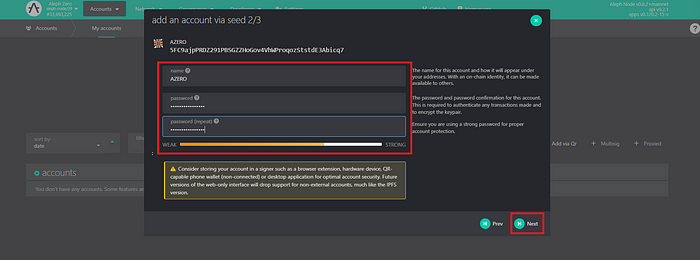
● Click on the “Save” icon on the next page that follows.

● You’ll be redirected to your account homepage after successfully setting up your account.
A json file will be downloaded to your PC automatically; the file can be used to restore your wallet to your account if you swap devices. Ensure you secure this file and your mnemonic phrase; they are the key to your account.
Nomination Pools
Nomination Pools allows users to pool their tokens together on network, to nominate validators who will secure the network, to stake and receive staking rewards for staking in network, and to take part in network governance.
● To proceed with staking, click on the “Network” drop-down tab, and “Staking” loads an overview page portraying live staking information.
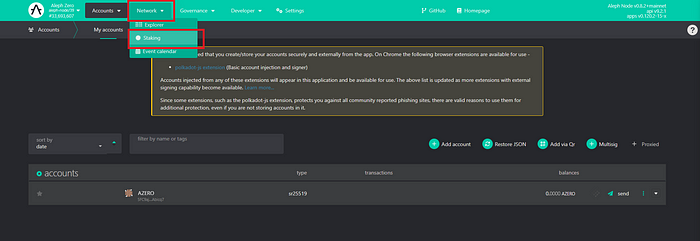
●Next is to click on the “Pools” tab

● Next is to find out Ubik Capital Pool and click on Join button.

● Next is to select your account on the next page that pops up, then you’ll input the number of AZERO you want to bond, click on Join button.

● For the final step, input your password and click on Sign and Submit button.
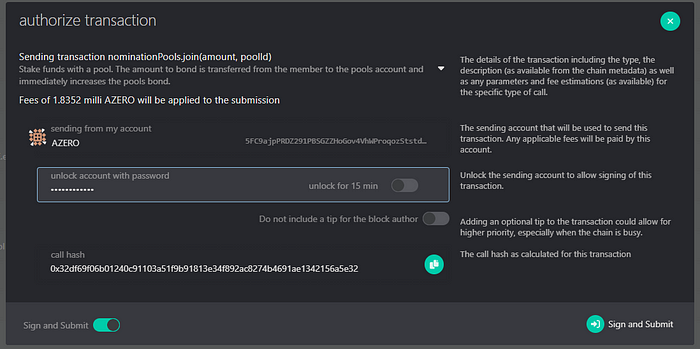
That’s it; you’ve staked your AZERO on Aleph Zero Mainnet.
For claiming your rewards, click on Network – Accounts – Pooled and then those 3 dots and Withdraw claimable.

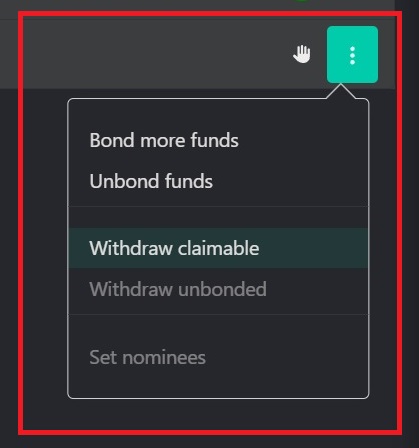
What is Slashing?
Slashing is a security mechanism for penalizing dishonest validators disrupting the network. Validators’ assets are slashed if found dishonest on the ecosystem; the “Slashes” tab holds a record of previously slashed validators which can help nominators to choose reputable validators because the slashing effect extends to all nominators under the slashed validator.
What is an Era?
An era on Aleph Zero Mainnet is a 24 hours duration with 96 sessions where each session lasts 15 minutes. Becoming a validator or nominator begins at the start of a new era, though the team is currently working on reducing it to 1 session (15 minutes). A session is 15 minutes, and 96 sessions equal an era that totaled 1,440 minutes (minutes in 24 hours). Payouts are usually requested after each era and can be claimed for the last 84 eras (days). To unlock your locked AZERO, you’ll have to wait for 14 eras.
Conclusion
Aleph Zero Mainnet may be in its nascent days, with ten foundation members being the validators. It is expected to be fully decentralized by allowing community members to become validators and govern the platform. New validators are expected to be on board by December 2022, as announced by the team.,